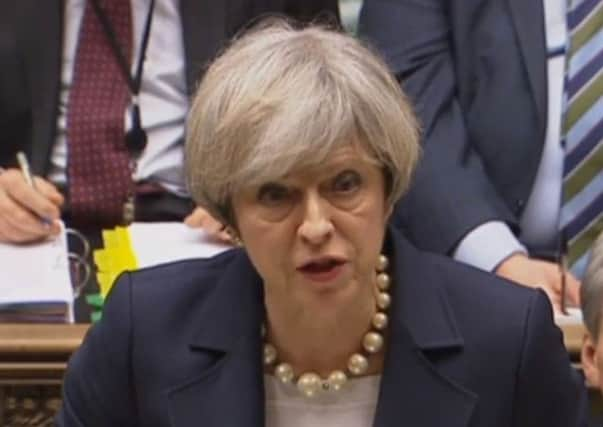Theresa May rejects calls for bespoke Scots immigration deal


The British Government also said that, after the UK leaves the European Union, the country “must face the future together as one United Kingdom”.
The call from Holyrood’s Culture, Tourism, Europe and External Relations Committee came as MPs prepare for three days of debate on the government’s Brexit Bill.
Advertisement
Hide AdAdvertisement
Hide AdIt is thought nearly 30 Conservative MPs could defy their leader if she does not guarantee Westminster a “meaningful vote” on the final Brexit deal to enable Parliament to force her back to the negotiating table in the event of a bad outcome.
In their report, MSPs said that, without a differentiated immigration deal, Scotland could suffer economically and culturally.
Stressing that there are now 181,000 EU nationals living in Scotland under “imposed uncertainty”, the MSPs have called on the UK Government to provide “clarity” on their residency rights “without further delay”.
The report says: “If these people leave as a result of the prospect or reality of withdrawal from the EU, it has the potential not only to undermine Scotland’s economic performance but also to reduce the sustainability and cultural diversity of our communities; whether in cities, towns or rural areas.”
The report states that, since 2000, half of the increase in those born outside the UK who are living in Scotland has come from the EU compared to one-third in the UK as a whole.
It adds: “As the majority are of working age, they have increased the size of the working population in Scotland and offset the effects of an ageing population.
“With higher fertility rates, they have also helped reverse population decline. The committee, therefore, believes that there are acute risks to Scotland of a loss of the existing EU migrants or a decline in future migration.
“EU migrants have enriched our lives and widened our cultural horizons; losing them would leave Scotland a narrower place.”